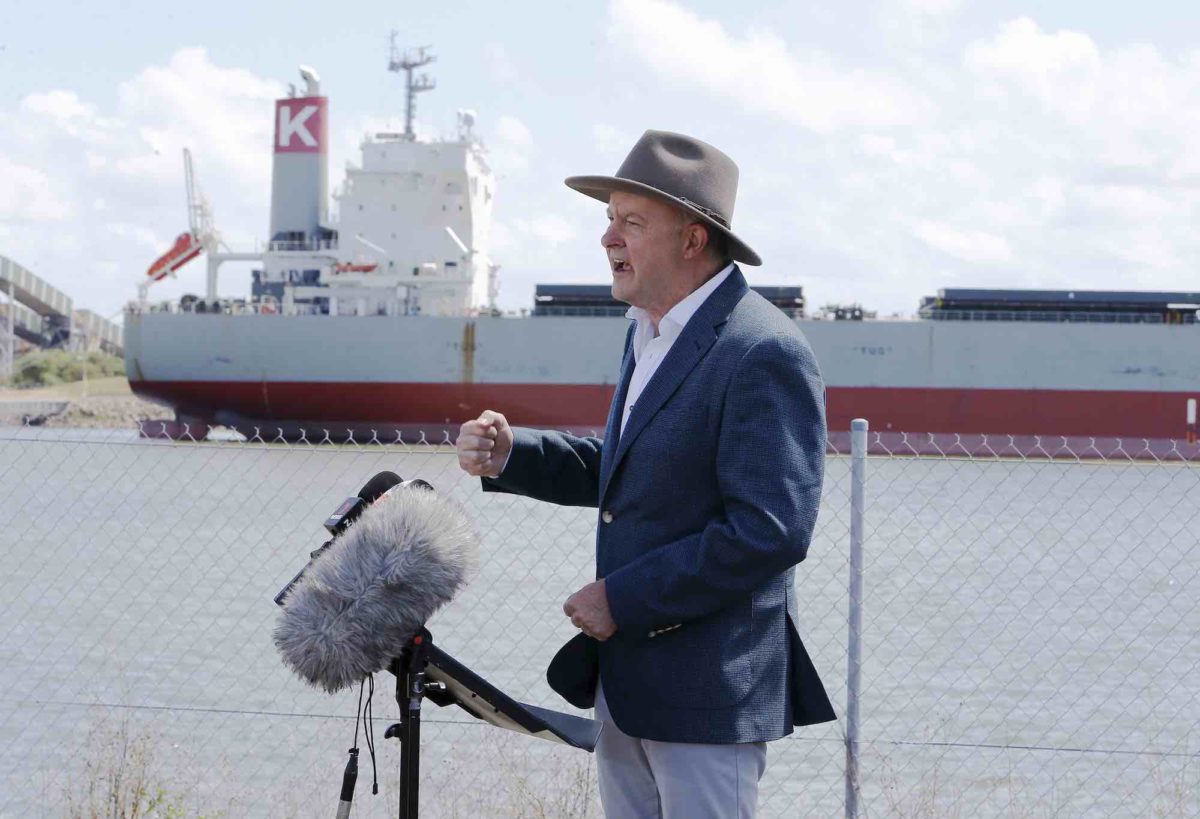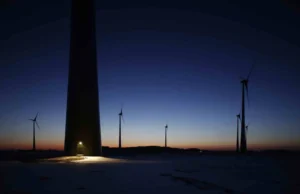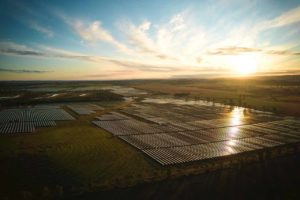On the key election battlefront of regional Queensland, federal opposition leader Anthony Albanese on Wednesday unveiled Labor’s latest policy promise: $200 million a year of funding set aside for disaster prevention and resilience.
In an announcement marking his seventh day touring the regions of the Sunshine State, Albanese said Labor’s Disaster Ready Fund would revamp the Morrison government’s “failed” $4.7 billion Emergency Response Fund, which he said had so far “not spent a cent.”
In a Tweet accompanying the announcement, Albanese also said that the first order of business for the Labor fund, which he hoped would be matched by state and territory governments, would be to support construction of a levee on the Pioneer River, in Mackay.
Three years ago, the Morrison Government committed to an emergency response fund. But they have not spent a cent on disaster recovery & have not completed a single disaster prevention project. Scott Morrison is all announcement & no delivery. Only a Labor Government will deliver.
— Anthony Albanese (@AlboMP) January 12, 2022
The pledge comes as parts of Queensland suffer major flooding in the aftermath of ex-tropical cyclone Seth, and with river systems filled to overflowing courtesy of heavier than usual rainfalls boosted by La Niña.
The community of Maryborough, on the Queensland Fraser Coast north of Brisbane, was one of the hardest hit over the weekend, after an emergency levee bank erected to protect the town failed on Sunday.
“Labor’s Disaster Ready Fund will curb the devastating impacts of natural disasters by investing in important disaster prevention projects like flood levees, sea walls, cyclone shelters, evacuation centres, fire breaks and telecommunications improvements,” a statement from Albanese and Labor’s shadow minister for disaster Murray Watt said.
“These investments will literally save lives, not to mention the taxpayers’ funds that have to be spent on recovery and repairs when disaster hits.”
“If matched by state, territory or local governments, [the fund] would provide up to $400 million annually for investment in disaster prevention and resilience – something called for by groups as broad as the government’s own Productivity Commission, insurers, local governments and disaster relief bodies,” the statement said.
Indeed, the Insurance Council of Australia was swift in expressing its approval of the Labor plan, as a “crucial change” and welcome investment in measures that protect communities from the impacts of more frequent and increasingly extreme natural disasters.
“The Insurance Council has long been calling for the level of investment in resilience measures to be increased, and we warmly welcome today’s announcement by Federal Labor,” said the body’s CEO, Andrew Hall.
“Regardless of the outcome of this year’s election, the next Australian government needs to invest in stronger homes and infrastructure that makes communities more resilient in the face of worsening extreme weather.”
The Insurance Council was particularly supportive of the policy’s focus on investment in projects to protect against the impacts of extreme weather, which it said would have a demonstrable financial return.
In the US, by way of example, National Oceanic and Atmospheric Administration this month found the costliest weather and climate disasters of 2021 did an estimated $1US45 billion in damage and claimed at least 688 lives – making it the third most costly year on record.
As The Conversation explains here, not every weather event is caused by global warming, but rising temperatures affect the climate in ways that amplify heat waves and droughts and can supercharge storms.
And, as the science keeps telling us, “much of that temperature rise is caused by greenhouse gases accumulating in the atmosphere from burning fossil fuels.”
Meanwhile, back in Australia, the National Party has responded to Albanese’s Queensland “charm offensive” – his political “manoeuvring” around the state has even impressed ex-Nationals MP Bob Katter – by doubling down on its support of coal power and re-booting its scare campaign against what it calls Labor “climate taxes.”
“We’re unambiguous about our support for the coal industry,” said Nationals leader Barnaby Joyce at a doorstop in Gladstone this week, alongside fellow Nationals MP Matt Canavan.
“We’re fair dinkum, straight down the line and fully support this industry because we know there’s so many people out there in this great industrial city of Gladstone whose jobs rely on it, whose income it underpins, the value of their house, their car, their kids at school, whether they’ve got a boat they want to take out on to the reef,” he said.
“A new year, and there’ll be a new decision for the Australian people this year – a decision about an election which will be about jobs,” added Canavan.
“It’s going to be about the future of our jobs here in Central Queensland. I would encourage everyone in Gladstone to come up here to the Auckland Point lookout before the election, just look around, look around.
“It doesn’t matter if you look, north, south, east or west – you will find another major employing business that the Labor Party and Anthony Albanese wants to tax under their climate change policy.”










